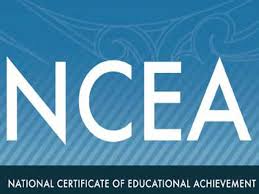The Senior school references years 11-14 and for most of us from a previous system this would have been Form Five to Form Seven and might have included a second year at any one or other level. NCEA has yet to be with us long enough for any of our current parents of seniors to have any personal experience of this system of internal and external qualifications. The National Certificate of Educational Qualifications includes most subjects that we are familiar with and many others that are relatively new or are industry based. Broadly speaking all those based in academic subjects are achievements standards (that is can be passed with Achieve Merit and excellences) and the others that are primarily industry based are unit standards. (Marked as Achieved and Not Achieved).
There is some correlation between Year groups and qualifications. Year 11 generally work at NCEA Level 1 (just as Form Five was School Certificate). Year 12 generally work at Level 2 and Year 13 at L3. However there the differences begin to develop, once a standard is achieved there is no repeating, and students may progress through the levels at different speeds that suit their learning and ability. It is possible for a student to be working at several levels in different areas. Level three subjects, if approved and with suitable conditions, provide the documentation for University Entrance.
The NZ Government has set as a National goal that 85% students will have achieved NCEA L2 before they leave school or in the year of their 18th birthday. This goal has been met since 2013 at this school.
Much work is currently being done to ensure that students in the senior school are gaining the qualification required for employment and these are identified as vocational pathways. Ideally students pursue their interests and develop new skill of interest to them and also ensure that they take subjects that ensure their acceptance into further education with suitable prerequisites and qualifications.
Where ever and when-ever possible, we choose to support seniors in their learning by developing, in collaboration with them, education plans that are engaging, varied and very suitable to them as individuals. To succeed in this learning environment students need to develop learning strategies and characteristics that will serve them for a lifetime of learning. This has lead to a number of courses that students engage with off site including trades academies and gateway work experiences.
Find Out More About NCEA at Raglan Area School.


Recent Comments